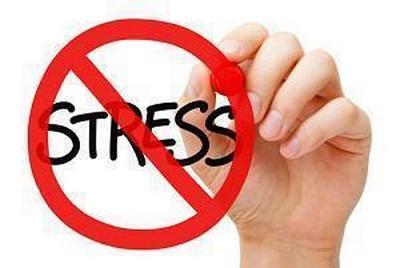Recent Blog Posts
Should You Keep Your Home After Divorce?
 Divorce can be full of tough decisions. One divorce decision that often challenges our clients is deciding whether or not to keep their marital home. Holding on to the house after divorce has its advantages and disadvantages. Many divorcing parents like being able to keep their children in the same school district. Similarly, most people have emotional attachments to their homes and neighborhoods, and change can be difficult. Keeping a marital home post-divorce can be dangerous, however, as many divorcees do not anticipate the financial implications of keeping the home with only one income.
Divorce can be full of tough decisions. One divorce decision that often challenges our clients is deciding whether or not to keep their marital home. Holding on to the house after divorce has its advantages and disadvantages. Many divorcing parents like being able to keep their children in the same school district. Similarly, most people have emotional attachments to their homes and neighborhoods, and change can be difficult. Keeping a marital home post-divorce can be dangerous, however, as many divorcees do not anticipate the financial implications of keeping the home with only one income.
First, it is best to consult with a qualified attorney before making any major decision on whether or not to keep your home. They have experience in this matter, and can review your specific case and give you their recommendation on whether keeping the home is feasible or not. If you are currently in the process of deciding whether or not to keep your home after divorce, consider these tips:
Tips for Co-Parenting During Back-to-School Time
 Most parents rejoice as the summer winds down and their children prepare for another school year. Routines can be re-established, homework and after school sports will keep the kids busy, and parents can enjoy some much needed relaxation time. For many co-parents and those in blended families, however, the transition to back to school for their kids can be a time of challenge and stress. Co-parenting is a wonderful way for divorced parents to both remain present and active in their children’s lives, but back-to-school time opens up a door for a lot of potential conflict and stressful communication. Who gets to take the kids to their first day of school? Who will attend their parent-teacher conferences? To what extent are stepparents and other family members involved? To avoid conflict while preparing your children for another school year, and to keep communication between you and your ex as smooth as possible, follow these helpful tips for co-parents:
Most parents rejoice as the summer winds down and their children prepare for another school year. Routines can be re-established, homework and after school sports will keep the kids busy, and parents can enjoy some much needed relaxation time. For many co-parents and those in blended families, however, the transition to back to school for their kids can be a time of challenge and stress. Co-parenting is a wonderful way for divorced parents to both remain present and active in their children’s lives, but back-to-school time opens up a door for a lot of potential conflict and stressful communication. Who gets to take the kids to their first day of school? Who will attend their parent-teacher conferences? To what extent are stepparents and other family members involved? To avoid conflict while preparing your children for another school year, and to keep communication between you and your ex as smooth as possible, follow these helpful tips for co-parents:
What Happens When One Parent Violates a Parenting Plan?
 When parents divorce, they separate with a court-approved parenting plan that will guide them on how to co-parent in the future. Some couples are able to draft a plan themselves to which both parties agree during the divorce process, and it is simply approved by the court. In other situations with more conflict, a court may order a parenting plan and require it be followed by both parties. These plans cover a range of topics pertaining to the parent’s children including parenting time, holiday arrangements, the financial responsibilities of each parent, the parenting responsibilities of each parent, and how both parents will communicate with each other about issues relevant to parenting.
When parents divorce, they separate with a court-approved parenting plan that will guide them on how to co-parent in the future. Some couples are able to draft a plan themselves to which both parties agree during the divorce process, and it is simply approved by the court. In other situations with more conflict, a court may order a parenting plan and require it be followed by both parties. These plans cover a range of topics pertaining to the parent’s children including parenting time, holiday arrangements, the financial responsibilities of each parent, the parenting responsibilities of each parent, and how both parents will communicate with each other about issues relevant to parenting.
The goal of each parenting plan is to review a couple’s unique divorce situation and lay out the best possible future for the children involved while keeping the children’s best interests in mind. Moving forward with a well-crafted parenting plan is vital to successful co-parenting, but issues do arise. What happens in situations where one parent violates the terms of their parenting plan? Divorce attorneys say issues with parenting plans come up frequently, sometimes years after a divorce has been finalized, and there are fortunately many remedies.
Happiness, Freedom, and Better Parenting: Why Divorce Is Better Than a Bad Marriage
 Life is too short to spend it stuck in an unhealthy, unhappy marriage. Unfortunately, divorce is a difficult decision to come to, and people all too often get stuck focusing on the negatives of divorce rather than the future positives. Yes, divorce can seem risky. Yes, leaving a relationship is a major, difficult decision to make. If you are in an unsalvageable, unhealthy marriage, however, divorce may be a necessary step towards more freedom and happiness in your life. Rather than focusing on the negative aspects of divorce, consider the many positives.
Life is too short to spend it stuck in an unhealthy, unhappy marriage. Unfortunately, divorce is a difficult decision to come to, and people all too often get stuck focusing on the negatives of divorce rather than the future positives. Yes, divorce can seem risky. Yes, leaving a relationship is a major, difficult decision to make. If you are in an unsalvageable, unhealthy marriage, however, divorce may be a necessary step towards more freedom and happiness in your life. Rather than focusing on the negative aspects of divorce, consider the many positives.
Be Yourself
Have you been suppressed in your marriage? Are you unable to pursue your interests? When was the last time you did something for yourself? While marriage may provide security, divorce will allow you the freedom to get to know yourself better. What do you want out of life? What are your goals? After your divorce, you will have time to focus on you, and also the chance to find a partner that supports whoever you want to be. People often worry about getting lonely after divorce. Do not fool yourself into thinking an unhealthy relationship is better than being alone. While adjusting to being single will take time, you will find yourself enjoying moments of solitude.
Understanding Paternity in Illinois
 Paternity is the legal relationship between a father and their child or children. When paternity is established, it is the legal responsibility of the father to support the child. Most fathers establish paternity over their children in a hospital at the time of birth, if they are either married to the mother or sign the child’s birth certificate. There are times, however, where establishing paternity after a child’s birth is necessary. Most of these cases usually involve children born out of wedlock. A mother, for example, may file a paternity action against the alleged father of her child in order to mandate that the father pays child support. In other instances, a father may wish to establish paternity so they are eligible for parenting time and child visitation. If either a mother or father is having difficulty establishing paternity, there are legal methods to force paternity to be established.
Paternity is the legal relationship between a father and their child or children. When paternity is established, it is the legal responsibility of the father to support the child. Most fathers establish paternity over their children in a hospital at the time of birth, if they are either married to the mother or sign the child’s birth certificate. There are times, however, where establishing paternity after a child’s birth is necessary. Most of these cases usually involve children born out of wedlock. A mother, for example, may file a paternity action against the alleged father of her child in order to mandate that the father pays child support. In other instances, a father may wish to establish paternity so they are eligible for parenting time and child visitation. If either a mother or father is having difficulty establishing paternity, there are legal methods to force paternity to be established.
Proving Paternity
Divorce Mediation Questions and Answers
 Did you know that you can divorce without ever setting foot inside a courtroom? Does a divorce with less conflict and more control for both parties sound appealing to you? If so, consider mediation. Through mediation, divorcing couples can reach an amicable divorce agreement without having to go before of a judge. What is divorce mediation and how does it work? Is it right for everyone? What are the pros and cons of mediation compared to other divorce options? Below, we answer a few common questions clients often have about mediation.
Did you know that you can divorce without ever setting foot inside a courtroom? Does a divorce with less conflict and more control for both parties sound appealing to you? If so, consider mediation. Through mediation, divorcing couples can reach an amicable divorce agreement without having to go before of a judge. What is divorce mediation and how does it work? Is it right for everyone? What are the pros and cons of mediation compared to other divorce options? Below, we answer a few common questions clients often have about mediation.
What Is Divorce Mediation?
Divorce mediation is a divorce solution that allows divorcing couples the freedom to negotiate an agreement on their own without input from a judge. A neutral third party, the mediator, helps guide the couple through the decision-making process. Through mediation, a couple can discuss and resolve any divorce issue, including property distribution, child custody and parenting time, retirement, taxes, and child support. Some agreements may come easily, while others may require longer discussions, all while the mediator facilitates the process.
Domestic Violence Victims Often Face Eviction
 Put yourself in the shoes of a domestic violence victim. You have faced abuse and left your relationship, but you are still struggling to deal with your abusive spouse. Your spouse constantly shows up at your house, taunting and terrorizing you and leaving you no choice but to call the police multiple times. One night, your spouse breaks down the door of your home and attacks you. Police and emergency medical personnel are needed to remove your spouse and get you to safety and treatment. You recover, but suddenly get news that you are being evicted from your home. Does this situation sound outrageous? Unfortunately, many domestic violence victims face eviction simply for being victims of abuse. How does this happen? Here is what you need to know about domestic violence and eviction.
Put yourself in the shoes of a domestic violence victim. You have faced abuse and left your relationship, but you are still struggling to deal with your abusive spouse. Your spouse constantly shows up at your house, taunting and terrorizing you and leaving you no choice but to call the police multiple times. One night, your spouse breaks down the door of your home and attacks you. Police and emergency medical personnel are needed to remove your spouse and get you to safety and treatment. You recover, but suddenly get news that you are being evicted from your home. Does this situation sound outrageous? Unfortunately, many domestic violence victims face eviction simply for being victims of abuse. How does this happen? Here is what you need to know about domestic violence and eviction.
Nuisance Laws
According to a recent survey of over 70 social and legal service providers, domestic violence victims account for over 10 percent of all evictions nationwide. How is this happening? One major way that domestic violence victims are punished for the crimes committed against them are nuisance laws. Many communities have passed laws and ordinances that hold property owners responsible for any crime that occurs on the property the own. If enough criminal activity happens on the property and law enforcement is needed multiple times, the property can be labeled a nuisance. Once labeled a nuisance property, the property owner faces fines and may be instructed to evict any renters on the property. While preventing drug trafficking and gang activity is worthwhile, and nuisance ordinances nationwide have helped in that regard, they also unfairly put many domestic violence victims on the street. Despite a tenant being a victim of domestic violence themselves, they are still renting a nuisance property and may face eviction.
Ways to Combat Divorce Stress
 Any major life change can be stressful, and divorce is certainly no different. Even the most amicable of divorces can feel overwhelming, with meetings, phone calls, court dates, and more. Some face greater challenges during their divorce than others, but most every divorcee can agree that their divorce left them stressed and emotionally drained at one point or another. It is important that those going through a divorce seek out ways to relieve their stress. Keep in mind that while divorce is an uncomfortable process, it can lead to significant happiness later, so the goal should be to simply get through the process and reach a fair outcome. Here are a few simple tips those going through a divorce can follow to reduce their stress levels.
Any major life change can be stressful, and divorce is certainly no different. Even the most amicable of divorces can feel overwhelming, with meetings, phone calls, court dates, and more. Some face greater challenges during their divorce than others, but most every divorcee can agree that their divorce left them stressed and emotionally drained at one point or another. It is important that those going through a divorce seek out ways to relieve their stress. Keep in mind that while divorce is an uncomfortable process, it can lead to significant happiness later, so the goal should be to simply get through the process and reach a fair outcome. Here are a few simple tips those going through a divorce can follow to reduce their stress levels.
Set Goals
For many, divorce is a time of uncertainty. It is easy to be stressed and anxious if the future is unknown. Those looking to reduce their divorce stress should set goals for themselves. These can be small, like making new friends, or big goals like finding a new career or mapping out your next living location. Any step you can take to make you feel more in control of your life will help alleviate your anxiety. Make an effort during your divorce to pursue these goals, and you will find yourself feeling more grounded and less consumed by emotion.
Understanding Marital Property Division in Illinois
 Property division is an important aspect of divorce. When a married couple decides to separate, they must reach an agreement on how their assets will be divided. Many people believe that in every divorce case, assets are divided 50/50 and half of the total marital assets are given to each party. This, however, is a common misconception. In a few states - Louisiana, Idaho, and California, for example, marital property is divided evenly down the middle and distributed to each party. In Illinois, however, and the majority of other American states, marital property is divided fairly and equitably, but not always equally. This means that in some cases, one spouse may end up receiving a larger amount of marital property, depending on the circumstances of the divorce. If property is not divided evenly, how does the division process work?
Property division is an important aspect of divorce. When a married couple decides to separate, they must reach an agreement on how their assets will be divided. Many people believe that in every divorce case, assets are divided 50/50 and half of the total marital assets are given to each party. This, however, is a common misconception. In a few states - Louisiana, Idaho, and California, for example, marital property is divided evenly down the middle and distributed to each party. In Illinois, however, and the majority of other American states, marital property is divided fairly and equitably, but not always equally. This means that in some cases, one spouse may end up receiving a larger amount of marital property, depending on the circumstances of the divorce. If property is not divided evenly, how does the division process work?
Many Factors
Under Illinois law, if a couple is unable to reach a property division agreement themselves, the division will fall to a judge. Once in court, the judge will review the unique circumstances of the divorce case, and decide from there how to equitably divide the couple’s marital property. This decision is impacted by a number of factors. These include:
Solidify Your Finances Before Divorce
 Divorce can be tough, both on your emotions and your wallet. Even amicable splits can leave people hurting financially, so it is important that those with a divorce in the future take steps to protect themselves. Seemingly minor actions like monitoring your credit score and opening up a new bank account can help you land on your feet post divorce. It is a good idea to review a few key actions you can take to protect your finances both during and after your divorce.
Divorce can be tough, both on your emotions and your wallet. Even amicable splits can leave people hurting financially, so it is important that those with a divorce in the future take steps to protect themselves. Seemingly minor actions like monitoring your credit score and opening up a new bank account can help you land on your feet post divorce. It is a good idea to review a few key actions you can take to protect your finances both during and after your divorce.
Gather Information
The first step in protecting your finances, and a very important one, is gathering all of your important financial information. Specialists recommend digging out documents covering the past five years - items like pay stubs, tax returns, bank account statements, and property information. These will all come in handy when it comes time to start negotiating with your soon to be ex. For those in need of extra protection, consider making copies of all of your important documents and store them outside of your home. A trusted friend or family member can hold on to them for you, or a private deposit box works as well. Just ensure that all of your important documents will be available when it comes time to discuss them.











 630-352-2240
630-352-2240



